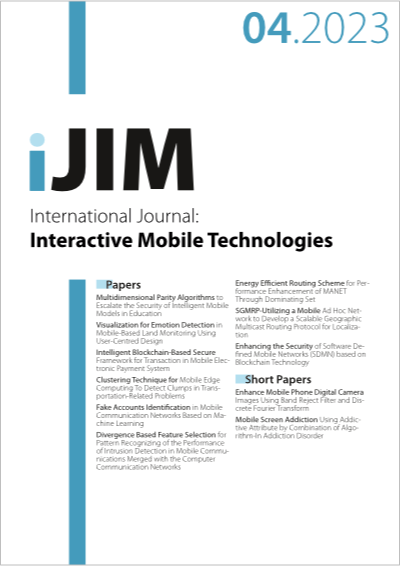Energy Efficient Routing Scheme for Performance Enhancement of MANET Through Dominating Set
DOI:
https://doi.org/10.3991/ijim.v17i04.37803Keywords:
MANET; Routing; Dominating Set; Nodes; routing overhead; EERA;Abstract
Mobile Ad-Hoc network is a distributed wireless network that is self-organized and self-maintained and it doesn’t require a fixed framework or central administration. Wireless nodes in a mobile ad hoc network are transient and have a short lifespan. They combine to form a self-configured, infrastructure-free network where routing is a significant difficulty. The wireless nodes in the network must synchronize in order to decide connectivity and routing. Ad hoc network synchronization includes activities including node organization, neighborhood detection, and routing. The predetermined framework resulted in an increase in network control overhead. If a node can link to every other node in the network, it is referred to as a dominating node, and a set of dominating nodes make up the dominating set. The main purpose of this article is to lessen routing overhead in the wireless network with the dominating set based routing (DSBR). In order to discover routes, shorten reroute establishment times, and increase packet delivery rates, this research presents an energy-efficient routing algorithm (EERA) that considerably increases the network performance. The effectiveness of this technique is demonstrated by the simulation analysis of the outcome.
Downloads
Published
How to Cite
Issue
Section
License
Copyright (c) 2023 M. Sangeetha, Dr. G. Erna, Dr. S. Rajes Kannan, Mochamad Ali Imron, Kakarla Hari Kishore

This work is licensed under a Creative Commons Attribution 4.0 International License.


